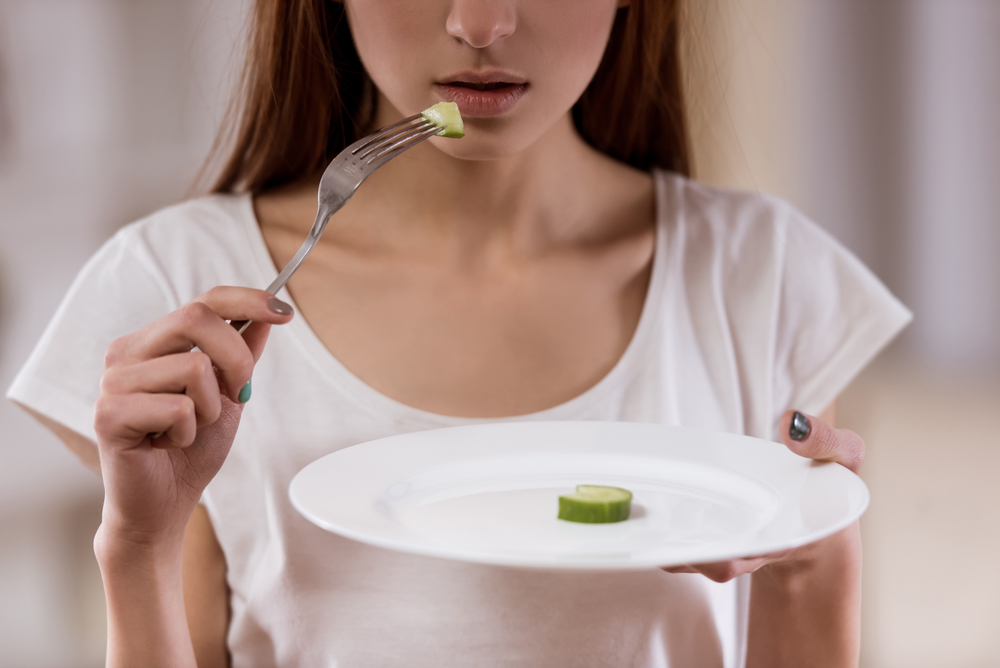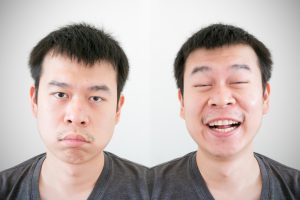Trigger Warning: Eating disorders. This is article is meant to be a reflection on disordered eating rather than professional help.
If you haven’t read the previous article introducing the various disordered eating behaviours, check it out here.
The writer does not have any formal qualifications in nutrition. The writer is an aspiring clinical psychologist with a keen interest in body dysmorphia and eating disorders.
The “Good Enough” Diet
Previously, we unpacked some of the common behaviours of disordered eating and tips on how to have a healthier relationship with food and our own body image. In this article, we will explore some reasons behind these behaviours and why they continue to persist in individuals.
With the abundant information on dieting out there, it seems as though food is solely used to achieve that ideal physique that we want. Everything has been broken down into protein, carbs, fat, and calories. This increases the salience and obsession over food, perhaps unnecessarily if your goal isn’t to be stage-ready for a bodybuilding competition, which contributes to an increased risk of eating disorders (Linardon & Messer, 2019).
Within the fitness industry, a maelstrom of nutritional information is constantly being shoved down the throats of fitness enthusiasts (e.g., infographics on good versus evil foods, miracle shakes, etc.), targeting food as the ‘root of all evil’. While there is truth in most nutritional claims, the rigid presentation can have an impact on how we view food and body image. If the goal is to lose weight, we have to be in a caloric deficit, but it can be done in a sustainable way without having to avoid certain foods, nor restricted to the point where we cannot enjoy a simple meal with friends! These two do not have to be mutually exclusive.
Most individuals do not need a radical shift in their diets in order to maintain a decent physique or performance in the gym. In fact, the tracking of calories using MyFitnessPal could be contributing to the development of eating disorders (Levinson et al., 2017). It’s okay to do just enough. Now don’t get me wrong, I believe that caloric restriction has a role to play in the pursuit of improved physical health, should you require it, but there is no association between weight loss and improved mental health, or well-being (Warkentin et al., 2013).
Pushing the narrative that we have to eat X amount of calories, drink a special shake, or eat X amount of carbs before a training session, creates an unnecessary focus on food. Yes, food is important, but our training or weight loss would not suffer much if we under/over consume a few calories more. In an interview with Lu Xiao Jun, Tian Tao, and Shi Zhi Yong, they seemed almost nonchalant when speaking about their diets. They mentioned making healthier choices about their diets but speak nothing about their macros or the amount of calories that they consume. Why do we obsess so much over nutrition when even world-class athletes appear so chill on the topic?
Weight On The Bar Vs Weight On The Scale
In the previous article, we encouraged individuals to turn their focus away from their body form to focusing on function through sport and movement, which can help with the obsession over body image. Yet, some sports seem to contribute to disordered eating pathology, with powerlifting being one of them, as there seems to be an overt focus on weight due to the concept of weight classes. When our attention turns to our IPF points (or Wilks/DOTS/whatever you prefer) and weight class, it can reduce our ability to focus on function instead.
This is explored in the interview study by Vargas & Winter (2020): “Weight on the bar vs. weight on the scale”. In the study, the researchers interviewed 17 female powerlifters about their disordered eating experiences. They identified several themes associated with powerlifting, disordered eating, and body perceptions. While the study was done in an all-female setting, it helps to highlight some of the invisible forces behind the struggles that some powerlifters face with regard to food. Unsurprisingly, the normalization of weight-cutting and weight classes, in general, have led to the development of disordered eating, due to the attention directed towards weight.
The theme that stood out was the projection of masculinity in powerlifting, resulting in the lack of disclosure of psychological struggles regarding weight cutting. The interviewees mentioned that they felt the norms of ‘masculinity’ within the sport were to “project confidence and never vulnerability.” They feared to talk about the struggles that they have about food and weight due to the stigma. After all, if others could do it and you couldn’t, wouldn’t that be embarrassing?
This point was the motivation and the goal of this article. We wanted to bring up and shed light on the difficulties that some of us face because it seems as if no one really wants to talk about them, but the struggle is real.
If you have found success in tracking your macros and being in a caloric deficit without sacrificing other aspects of your life, I am truly happy for you. However, if you struggle with:
1. Feeling anxious about overeating food without knowing how it was prepared
2. Having to restrict caloric intake the day before/after
3. Feeling guilty about eating too much/little
4. Rejecting meals with friends to control your caloric intake
I understand, and this is for you.
So how do some people have a healthy relationship with food, while others feel the need to control their diet down to the tenth decimal place of protein? We first have to examine the function of food to us as it is viewed differently by different people – it gives us control, evokes pleasant emotions, helps us cope, and nourishes our bodies. The following are some reasons that I’ve observed how an unhealthy relationship with food might develop.
Keep in mind that the formation of disordered eating behaviours is multifactorial, and not one single reason will be able to explain the experience of every individual, so it helps to be open-minded when relating this information with someone you know.
Ways Of Coping With Emotions
Food is a coping mechanism used by many to deal with the distress we face in our everyday lives. This is an important point given the number of athletes that have taken up strength training to deal with difficulties with body image and life stressors. When we are stressed, disordered eating behaviours (e.g., binge eating, purging, counting calories) can serve as maladaptive emotional and behavioural regulation strategies (Wedig & Nock, 2010), distracting us from the difficult thoughts and emotions that we face (Hayaki, 2009).
Controlling the food that we eat, be it through bingeing or restricting, it distracts us from the problems that we have in our everyday lives, allows us to self-soothe, and avoid various emotions (Costin, 1999). Food also helps to alleviate negative moods (Spoor et al., 2007). Perhaps, it is necessary to reflect on our eating behaviours to understand why we tend to seek food for comfort.
Our obsession with food also provides us with an opportunity to control an aspect of our lives, especially when all else seems bleak. In the face of multiple stressors and chaotic surroundings, control over food seems like a way for us to control our environment, giving us a little respite. However, this simply surrenders us to disordered eating instead, deflecting us from the root cause. Instead of exerting more control over our lives, we end up controlled by our maladaptive behaviours.
Body Image
“After I eat, I will hate going to shower because it would mean that I have to look in the mirror” – Sarah
Comments from others, be it family, friends, or bullies about our weight certainly do influence our body image. In fact, most individuals begin their weight loss journey and diets because they were teased about their weight (Kuek et al., 2015). A survey by Kok and Tian (1994; way before social media and its negative effects on body image) found that 69% of the participants that were teased about being overweight resorted to a form of dieting.
Undoubtedly, food is a way in which we use to alter our body image, which can be defined as the attitudes that we have toward our own bodies. Dissatisfaction, preoccupation, and overvaluation of weight/shape in our body image have been core to the development of maladaptive eating behaviours (Mitchison et al., 2016). To feel comfortable in our own skin is something that many of us struggle with daily, and the associations between self-esteem and body image are clear (O’Dea, 2012). Dieting provides an outlet for us to ‘improve’ our self-esteem, and hence, it would be easier to just diet and attain the ideal body that we want. Yet, many people who diet never seem content with what they have achieved! Many of the interviewees shared these sentiments, and we will explore why this occurs later.
“Every time I achieved a certain weight, I would think that there would be more weight to lose” – Yvonne
We are so much more than what we THINK we look like because that image of ourselves can be distorted! Often, we are judged first by our appearance, and that is normal and extremely human. But we CAN and are allowed to feel good about ourselves, no matter what we tell ourselves about our own bodies. Body image is but only a single factor that makes up our identity. Think about the following:
How Do These Behaviours Persist?
For many of us, we give in to hunger rather easily, but someone else with an eating disorder might be able to last much longer in a state of hunger or continue to consume food beyond satiety. Here are some reasons that perpetuate these eating behaviours.
Compliments from others
“When people tell me that I look so good and that I’ve lost weight, I felt really good after that” – Sarah
Sometimes, however well-intentioned we are, commenting on a person’s appearance may end up feeding into their maladaptive beliefs and reinforcing their disordered eating behaviours. It is natural to praise someone for their weight loss and validate the effort and hard work that they put into it. I think this is great! It’s akin to praising someone for doing well in an examination they studied hard for. It also keeps people motivated to continue to live their life in a healthier manner, especially if they weren’t as active before. However, this becomes a double-edged sword when certain cognitions are in play. Praising someone for their weight loss doesn’t just stop there, it can be a signal that the disordered eating behaviours are working and that they should continue to do so.
“Compliments from others about my weight loss made me feel happy and also made me think that I’m doing the right thing.” – Yvonne
These positive comments, albeit well-intentioned, reinforced her disordered eating behaviours and motivated her to continue with them. Although it might appear empowering, it can have unintended negative consequences when an individual has existing beliefs about food and body image.
Black And White Thinking
We are all guilty of black-and-white thinking, which is a type of distortion in our cognitions that often polarizes the way we view situations. This type of thinking leads one to view situations as either 1s or 0s, with nothing in between. Take for example the following scenarios:
Have you ever eaten a sinful meal, and felt like since you’ve already cheated on your diet, you might as well go all the way?
On the flip side, perhaps you’ve overshot your calories by a little and felt like your entire diet just went down the drain.
Yes, having a little more to eat might take us further away from our goals, but it doesn’t mean that everything is ruined. In reality, a surplus of 100 calories for a day wouldn’t make a dent in our physique.
“The moment food goes in my stomach, it’s fat” – Charlotte
Black and white thinking often occurs when we are making food choices. Perhaps we were supposed to go for a meal with our friends but turned it down because we thought that it would ruin our diet. There’s so much grey area to be explored. Instead of flat out rejecting the meetup, we could suggest a meal at a place we’re more comfortable eating at, or perhaps look at the menu and see if there are any options that suit our preferences, among many others.
Fortunately, many things in life exist in a grey area. Our vocabulary is made up of more than just always and never — sometimes exists too! We can be on a diet and indulge from time to time. Instead of only focusing on the black and white, think about ways we can incorporate some grey into our lives.
Rigid Thoughts And Overthinking
In our interviews, the topic of “safe foods” kept coming up in relation to what was being consumed during a phase of disordered eating. To Yvonne, safe foods were the proverbial bro foods – chicken, broccoli, and sweet potatoes. Trying out other foods was challenging for her as it led to overthinking, wondering about the method of meal preparation, and how it would lead to weight gain or the feeling of bloat that followed. This exemplifies the black and white thinking during disordered eating, where foods are categorized as either “safe” or “unsafe”. Unsafe foods are typically avoided, while safe foods provide comfort and reduce any worries about weight gain. While this is one way to attain the physique that you want, it is not the only way to do so. Furthermore, being bloated is a normal reaction that every single person would have, and it isn’t permanent.
Try challenging these thoughts that appear with the following questions. Think back to a time when you chose to avoid a meal with friends because you had thought that you would look “fat” after consuming it.
1. What is the evidence for that thought?
“Consuming this meal wouldn’t drastically affect my body composition, it’ll even nourish me.”
2. What would I tell a friend with a similar issue?
“You deserve the meal, after all, you haven’t had much to eat the entire day.”
3. What are the consequences of these thoughts?
“If I avoid having this meal, I might end up bingeing later on”
In fact, eating enough nutritious food can help us feel better than the consequences we think might occur! Sarah reflected that:
“After eating more, I started fainting less and felt better.”
Having rigid thoughts only leads to increased anxiety when we can’t eat the foods that we desire or increased avoidance of various situations. Yvonne mentioned the emotional anguish that accompanied these thoughts:
“I would feel worried and anxious after, more withdrawn and stuck in my thoughts than my usual self”
Now imagine that we were only allowed to eat “safe foods” for the rest of our lives, how much of our life would we miss by spending time obsessing over meals and avoiding various social situations? Is this truly the life that we want to lead? Think about what life is going to be when we’re older. Would we still value this current moment of eating chicken breast and broccoli? Would you rather spend time with your friends now?
Concluding Thoughts
While making healthier choices in our diets is certainly a great way to live, we should also acknowledge that some of us suffer while doing so. We’ve all become so obsessed with decorating our bodies, we forget to simply live in them.
We can all strive to be a little less harsh on the way we view our bodies. We can feel differently about our bodies at different times, and that doesn’t change our identity and self-worth. Instead of viewing the body as a constant that must look a certain way all the time, we can practice a little body image flexibility and acknowledge that our bodies will change through time, without feeling compelled to change them (Sandoz et al., 2013).
I hope this piece has helped you reflect on your relationship with food and gave you a little more insight into your food choices. If you feel that your relationship with food or body image is severely impacting your well-being, please do not hesitate to seek professional help. If you suspect that you might have an eating disorder, Singapore General Hospital has an eating disorders programme through a holistic approach with a multi-disciplinary team.
If you would like to talk to someone, here are some additional resources for you: https://thesmartlocal.com/read/therapy-guide-singapore/
Thank you, to all the interviewees who contributed to this article! We deeply appreciate each and every one of you who took the time out for the interviews and for being vulnerable, in hopes of spreading awareness.
Feel free to reach out to us via our Instagram @enso.powerlifting or via email [email protected] if you have any questions!
This article and commentary first appeared on ENSO Powerlifting.











